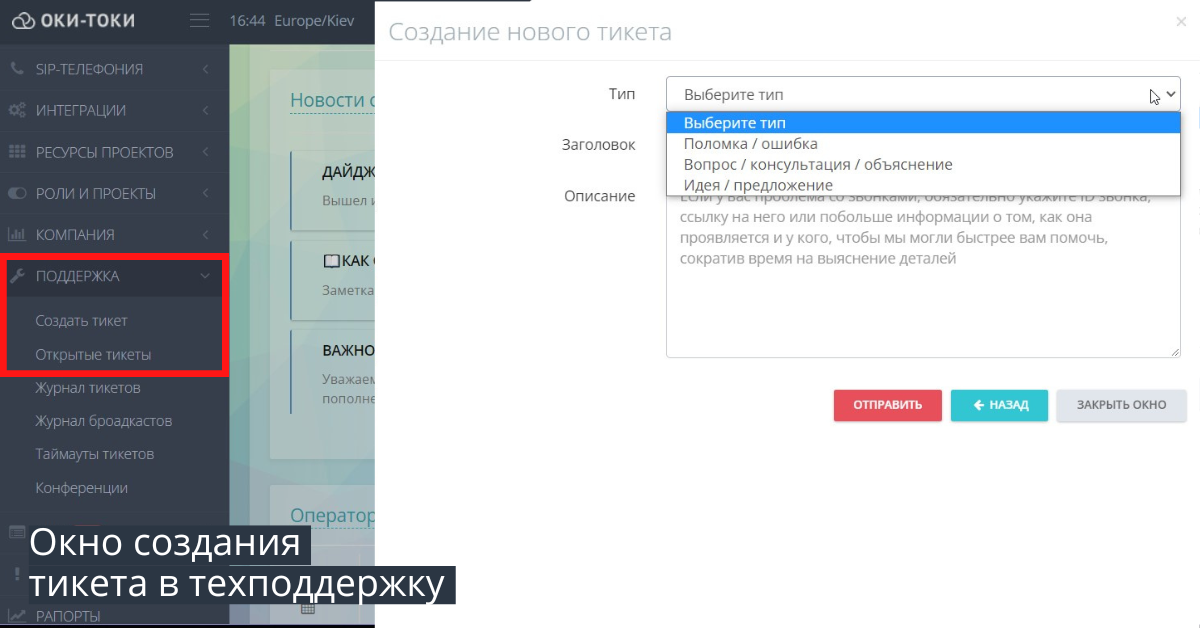Selling words and phrases are tools that help managers boost sales volumes. They create a positive first impression, establish a connection with the client, and persuade them to make a purchase.
For instance, an agent can use the phrase “Good day, I am pleased to welcome you to our call center”, to demonstrate professionalism and respect towards the client.
Moreover, selling words and speech scripts can assist agents in building an emotional connection with clients and showing interest in their needs. The use of phrases, for example, “I understand that you’ve encountered difficulties. Let’s sort this out together”, can make the client feel understood and supported.
Effective phrases can create a sense of exclusivity for the customer. Phrases like “This product is available only to our VIP clients” or “You are one of the few who can take advantage of this offer” can expedite the purchasing decision.
Overall, the use of selling words and expressions is a vital aspect for call-center agents to increase sales volumes and overall business efficiency.
What phrases should not be used for sales?
We often unknowingly use phrases that may reduce the conversion rate without realizing it. Below are some speech modules that:
- Undermine the agent’s importance in conversation, exhibiting a lower position rather than being on par with the client: “May I ask?”, “I would like to offer”, “Are you being disturbed”, “I apologize for the inconvenience”, “Might this offer interest you?”
- Raise doubts about the product or the manager’s expertise: “Quite profitable”, “In principle, a good option”, “I don’t know”, “I am not competent on this issue”, “Probably, this will suit you”.
- Toxic to speech, such as parasite words, diminutively affectionate, overly formal or canned phrases.
- May trigger an automatic negative response from the client. Some such phrases include:
“Are you interested in our offer?”
“Do you want to make a purchase?”
“What would you like to think about?”
“When can I call you?”
“Is it convenient for you to speak now?”
Recommendations for proper use of selling words
Let’s now discuss some guidance on how to avoid certain phrases and speech modules during cold calls that may negatively impact conversation effectiveness.
Phrases that make the agent less significant in the dialogue with the client:
“May I ask?” Don’t use it, ask the customer straight away.
“I would like to offer” replace with “Let’s do…”
“You are disturbed” and “I apologize for the disturbance” remove without replacement.
Phrases that cause doubt in the customer:
“Fairly beneficial” replace with a list of the product’s value.
“In principle, a good option” specify why it is better than others.
“I don’t know” and “I am not competent” replace with “I will check for you…”.
“Probably, this will suit you” give an explanation why the customer will not like this product and offer alternatives.
Toxic for speech:
Filler words.
Diminutives (cutesy forms).
Overly formal phrases; e.g., replace “the given sentence” with “this sentence.”
Clichéd phrases.
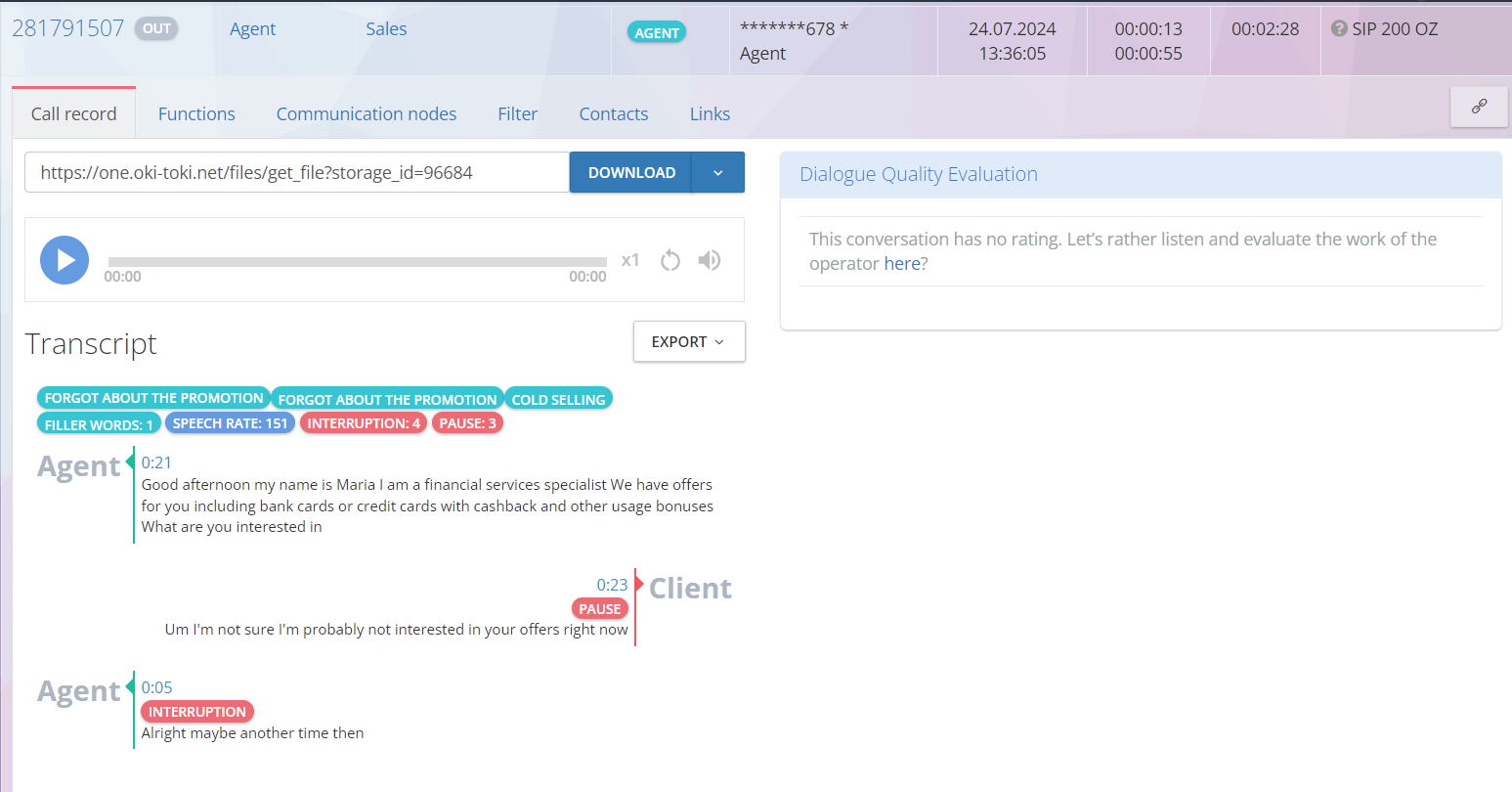
Phrases that program the client to respond not in favor of the manager:
“Are you interested in our offer?” replace to “Let’s tell you in more detail, okay?”
“Don’t want to buy?” replace with “Let’s place an order, you’ll pay by card or calculated?”
“What do you want to think about?” replace with “Tell me honestly, what is your doubt?” ( with a change in intonation)
“When can I call you?” replace with “Tomorrow at the same time I will call you, okay?”
“Are you comfortable talking now?” – do not ask a question in any form!
The correct use of sales words generally helps to convince the client to buy. Use them according to your target audience and do not overuse them to help the client make the right decision.
Agent manipulative techniques:
The work of a call center agent requires not only excellent communication skills, but also the ability to convincingly present products or services. Manipulative sales techniques allow call center agents to skillfully manage the process, ensuring a successful transaction and customer retention.
Let’s consider several interesting manipulative sales techniques that will help agents effectively interact with customers and achieve better results:
- Create an emotional connection:One of the key aspects of manipulative sales techniques is the ability to establish an emotional communication with the client. Try to use emotional intelligence and understand the customer’s needs and desires. Try to use emotionally charged phrases and expressions to evoke positive emotions in the client. For example, instead of the usual “How can I help you?” you can say “What do I need to do to make your day even better?”.
- Emphasize the advantages and benefits: Manipulative sales techniques also include ways emphasize the advantages and benefits of a product or service. Instead of simply listing features, show the customer how your offering will solve their problems or meet their needs. For example, instead of saying, “Our product has a long lifespan,” you could say, “With our product, you can enjoy its quality and durability for many years, saving you money on constant replacements.”
- Use social proof: People are often guided by the opinions of others, especially if they are positive. Use this to your advantage by providing the client with information about how many people have already taken advantage of your offer.
- Create limitation: Manipulative sales techniques often involve creating the feeling of limited supply. Perhaps you can offer the client a discount or bonus, but limit it by time or number of available seats. This will encourage the client to make a quicker decision so as not to miss out on a profitable offer. But be careful not to use this technique in a malicious way. It is important to be honest and transparent with the client.
- Personalize your offer: To make the client feel like you really care about their needs, try personalizing your offer. Use the customer information you’ve already learned from your communication to make your offer more relevant to their needs. For example, if a client is interested in travel, you can offer him a package of services that suits his preferences and interests.
- Apply the principle of agreement: Manipulative sales techniques often use the principle of agreement, based on that people tend to agree to something small if they have already agreed to something more. For example, if you have already sold a customer a core product or service, you can offer them additional options or accessories based on their previous consent. It is important to make such offers carefully so as not to create a feeling of coercion or intrusiveness.
Manipulative sales techniques can be a powerful tool for call center agents, helping to achieve successful results. However, it is important to remember that these techniques should be used with care and ethics so as not to violate the trust of clients. The key is to create long-term relationships and satisfy customers by offering them valuable products and services. Use these manipulative sales techniques wisely and watch your sales success soar.
Methods and techniques for closing the sale
Completing a transaction is one of the most important moments in the work of a call center agent. When you’re at the finish line, every word and every action matters.
Some fun methods and techniques that will help you close the deal with energy, confidence and professionalism:
- Create a sense of urgency: One of The most effective methods for completing a transaction is to create a sense of urgency in the client. Try to convey to him that the offer is limited in time or has a limited number of places available. But remember that it is important to be sincere and not create a false sense of urgency. For example, you could say: “We only have a few spots left at a special price. If you don’t want to miss this opportunity, I recommend making your decision today.”
- Eliminate doubts and objections: Often clients have doubts and objections before completing the transaction. Your task is to clarify them and eliminate all doubts so that the client feels confident in making a decision. Listen carefully to the client and try to understand their concerns. Then use facts, examples, or success stories to resolve those doubts. For example, if a customer expresses doubts about the reliability of a product, you can say: “I understand that it is important for you to have confidence in the reliability of our product. We have many satisfied customers who have been using our products for a long time without any problems. Let me I’ll share their story with you. Okay?”
- Highlight the value and benefits: It is important to remember that customers want to know what benefits and value the proposed offer will bring them. Instead of listing features, focus on how your product or service solves a specific problem or meets a customer need. Show them how they can save time, money or improve their life. For example, you can say: “Our service will help you save up to 30% on expenses and free up more time for the important things you love to do.”
- Use effective closing phrases: Closing phrases can make all the difference at the completion of the transaction. Instead of standard phrases, try using unique, compelling statements that emphasize the importance of the offer to the client. For example, instead of simply “I’ll be glad to help you with this deal” you can say “Let’s finalize this deal together.”
Closing a deal is not only the moment when you get the client’s consent, but also an opportunity to strengthen the relationship and meet the needs of the client. The methods and techniques described above will help you make the closing effective and successful. However, do not forget that Each client is unique, so it is important to tailor your methods to their needs and communication style. Be professional, listen to the client and strive to find the best solution for their needs.
Recommendations for communicating with clients
- Be professional. When communicating with clients, it is very important to be able to establish a connection and build trust. Below are some recommendations for communicating with clients.
- Listen carefully. It is important to listen and hear the client in order to understand his needs and problems. Ask open-ended questions and give the client the opportunity to speak.
- Be polite. Politeness and goodwill help to establish a connection with the client and create a trusting relationship.
- Show interest. Show the client that you are interested in his needs and are ready to help him solve problems.
- Speech should be professional and effective. Use clear and understandable words, do not use jargon and speak in a language that the client can understand language.
- Be prepared for compromises. Sometimes clients may have different needs and expectations. Be prepared to make compromises to meet the client’s needs.
About cold sales technique by phone can be read in a separate article on the blog.
What is the correct script?
Correct sales script is a conversation template that helps call center agents connect with the customer, highlight product benefits, and convince the customer to make a purchase. When creating a sales script, it is important to consider many factors, such as the purpose of the call, the target audience, the product or service you offer, etc.
Recommendations that will help you create an effective sales script for a call center:
- When creating a sales script, it is important to understand who will interact with it and how familiar they are with the product or service.
- The structure of the call should be logical and contain steps that will help you achieve your goal.
- Prepare answers to objections from potential clients and add phrases for successful sales to the script.
- Your tone of voice and body language make a big difference in the outcome of the call, so be friendly and professional in your communication.
- Test your script in practice and optimize it depending on the results.
- It is important to constantly improve your communication and sales skills, as well as learn new techniques and speech modules for call center agents.
Ready scripts for the call center – in our article on the blog.
Do not forget that successful sales are not only business script , but also your enthusiasm, professionalism and ability to establish contact with the client. Ultimately, it all comes down to how well you can convince a customer of the need for your product or service.
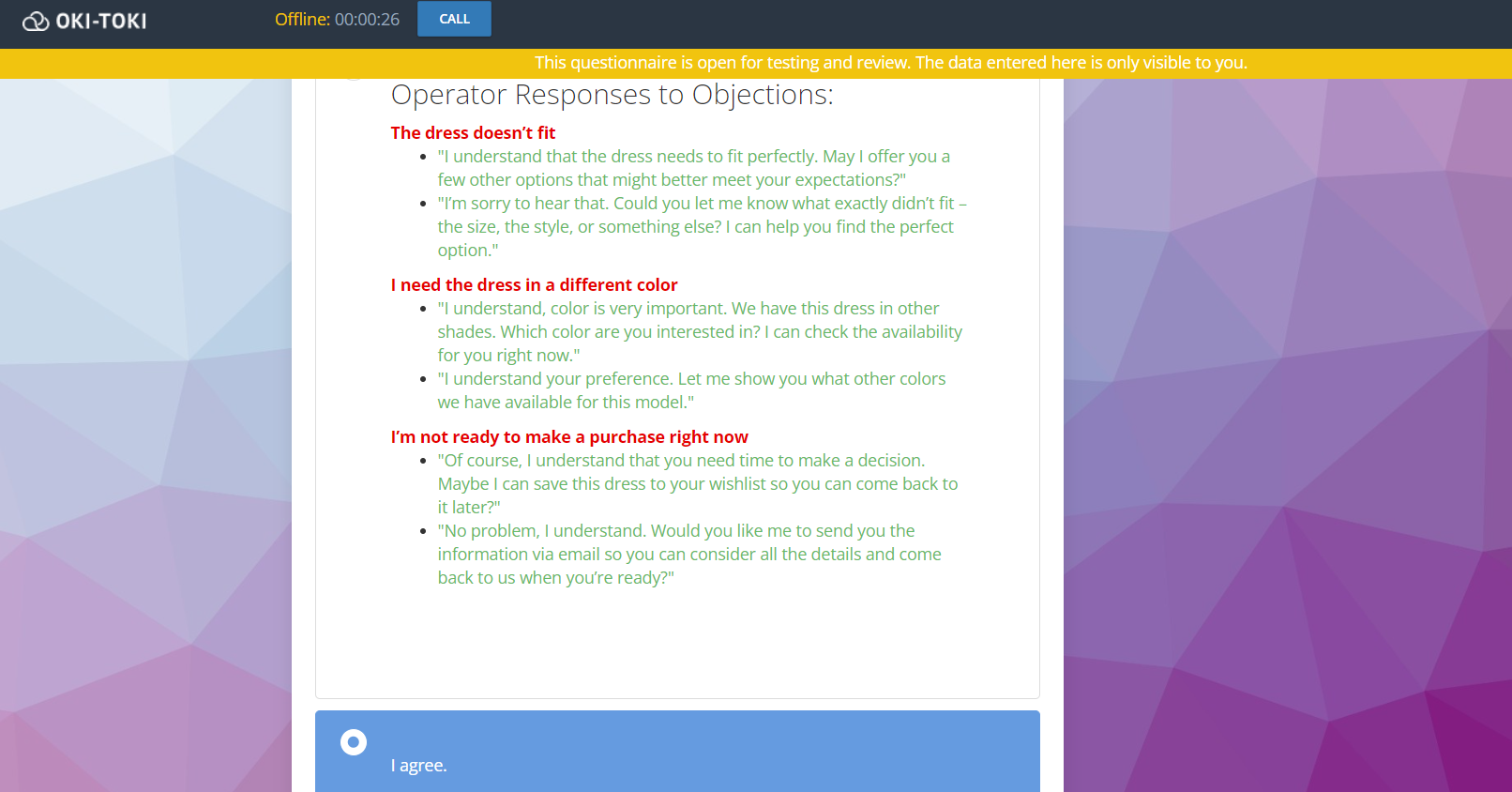
However, creating an effective sales script is only half the battle. It is important to be able to establish a trusting relationship with the client, show enthusiasm and professionalism so that the client feels that you are ready to help him solve his problem or meet his needs.
And, of course, don’t forget to create an atmosphere in which sales will happen naturally. Nobody likes a press conference, so create an atmosphere in which the client feels comfortable and ready to cooperate with you.
How to create sales script from Google Docs in Oki-Toki, read the article on the blog.
Tools for the quality control department:
Some of the Oki-Toki tools that can help you understand how correctly an agent speaks:
- Speech analytics: Oki-Toki uses speech recognition technology to record all conversations between agents and customers, allowing you to check what was said and identify potential errors and problems.
- Monitoring the quality of customer service: Oki-Toki makes it possible to record conversations between agents and clients in order to listen to them later . This way you can analyze the quality of communication between the agent and the client and identify problems that need to be corrected. In addition, you can listen to conversations online and give the agent tips on the go.
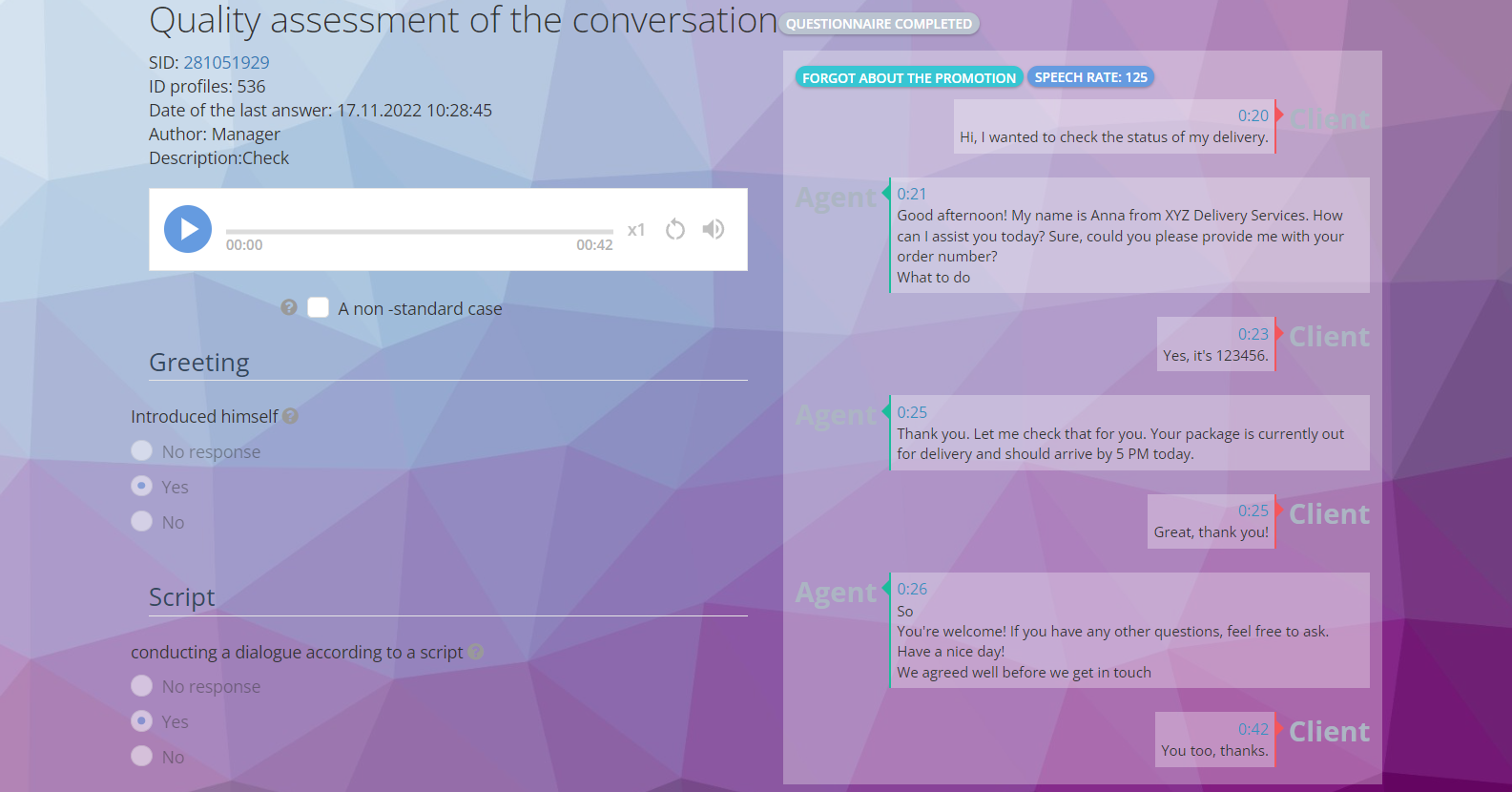
- Evaluating conversation quality: Oki-Toki provides tools for assessing conversation quality between agents and clients. This can be accomplished by creating scorecards and inspection plans through which supervisors can provide feedback to agents on their performance.
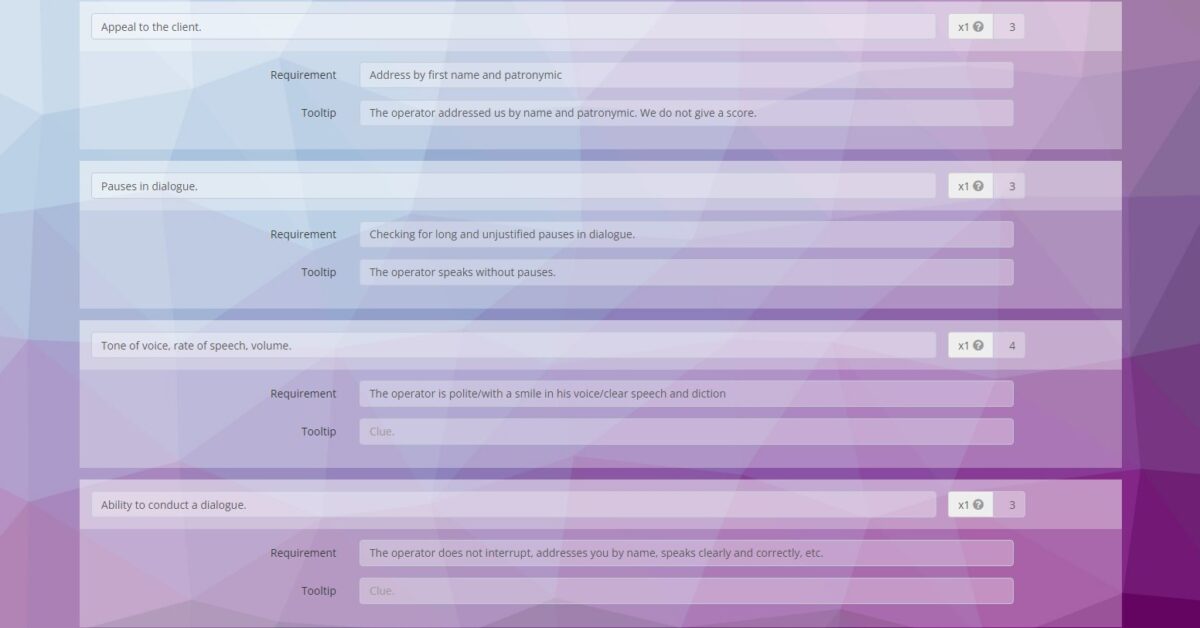
- Reports and analytics: Oki-Toki provides detailed reports and analytics to determine agent performance and identify trends and patterns that can help improve the customer experience.
Thus, Oki-Toki functionality for OKC and agent tools help improve employee efficiency and improve their selling skills. In addition, companies can use the data obtained through Oki-Toki tools to optimize processes and improve products and services, which also leads to increased sales and profits. Overall, the use of Oki-Toki tools can be a key factor in a company’s success in the market and ensure its long-term sustainability and growth.


